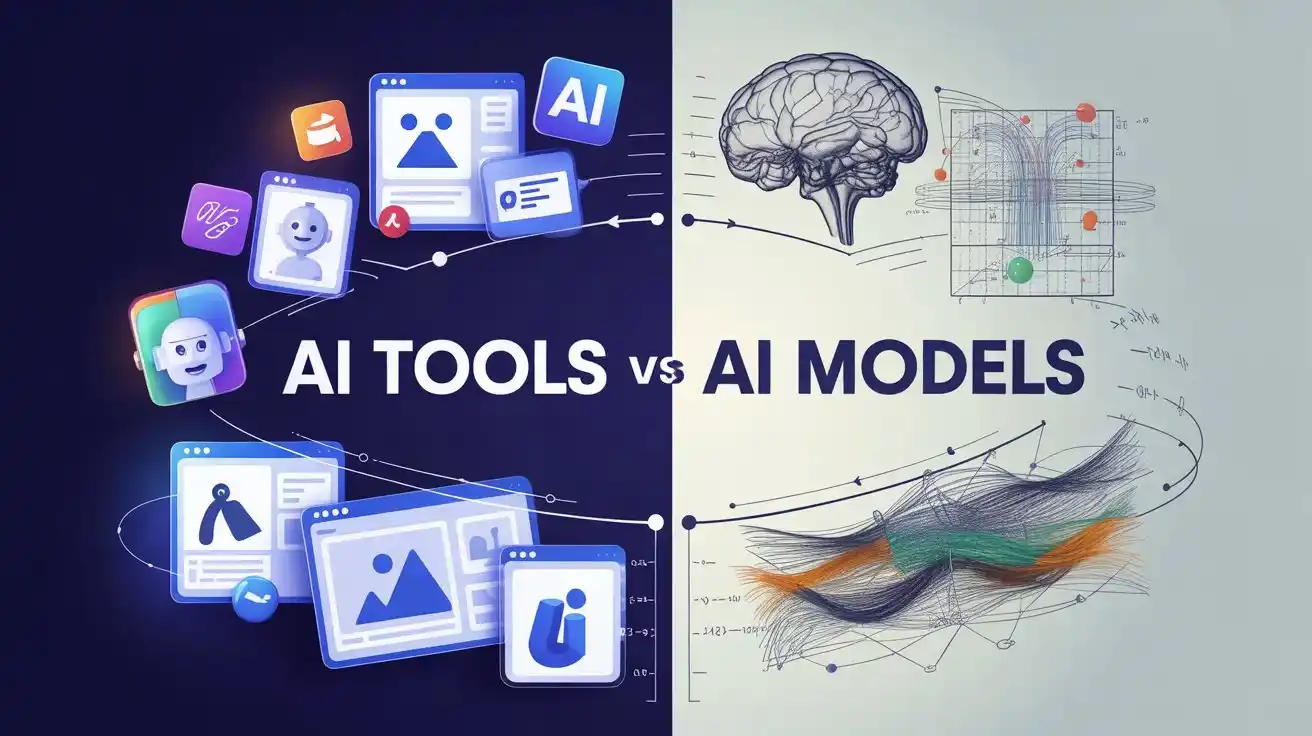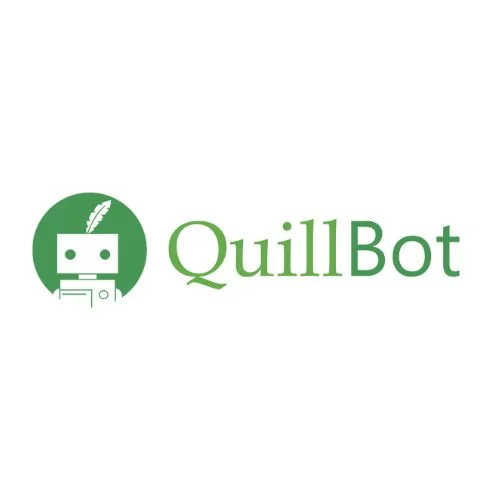10 Best AI Learning Websites to Master Artificial Intelligence in 2025
Discover the top AI learning platforms in 2025 offering practical skills, certifications, and real-world projects for global learners.

1. Introduction
Why AI Skills Are No Longer Optional in 2025
In 2025, AI is no longer a niche technology — it’s a core part of daily business operations, creative work, and even small-scale entrepreneurship. From automating repetitive tasks to building innovative products, AI fluency is quickly becoming as important as basic computer literacy was two decades ago.
A LinkedIn Workforce Report from early 2025 shows AI-related job postings have grown by over 35% year-on-year, with companies competing for talent in areas like AI engineering, data science, and AI-driven marketing. This growth is not limited to tech giants; industries like healthcare, finance, and manufacturing are also increasing AI hiring.
How Online AI Learning Platforms Are Bridging the Skills Gap
Traditional education struggles to keep pace with AI’s speed of change. Online AI platforms fill this gap by delivering flexible, project-based, and globally accessible learning experiences. They adapt quickly, adding new courses as tools and techniques evolve.
Why Curated Learning Saves You Time and Accelerates Growth
You could spend months sifting through thousands of AI courses online. A curated list like this filters out low-quality options, ensuring you only see credible, up-to-date, and impactful platforms — saving you time and helping you start faster.
2. Why Learn AI Now?
AI Job Market Growth and Six-Figure Opportunities
In 2025, AI-related jobs frequently break into the six-figure salary range. Glassdoor data shows:
AI engineers in the U.S. average $125,000–$165,000/year.
AI product managers earn $110,000–$145,000/year.
Prompt engineers (a role that barely existed three years ago) can command $90,000–$130,000/year.
Emerging AI Career Paths
AI is creating entirely new professions:
Prompt Engineering – crafting precise instructions to guide AI output.
AI Product Management – leading AI-powered feature development.
AI Research Specialist – advancing model capabilities and ethics.
AI Integration Consultant – helping companies adopt AI tools.
How AI Literacy Benefits Non-Tech Roles Too
Even if you’re not coding, AI literacy makes you more competitive. Marketers can automate campaign optimization, HR teams can use AI for talent screening, and educators can leverage AI tutoring systems.
The speed of AI adoption is insane — miss it now, and you’ll be catching up for years. We broke this down in 30 Things You’re Too Late About AI.
3. How We Curated This List
Selection Criteria
To make this list meaningful, here’s what I cared about:
Track record: Institutions and professionals that walk the walk.
Clear learning steps: From basics through advanced topics.
Practical outcomes: Real assignments, simulations, or tools you can use immediately.
Tangible credentials: Certificates or badges that hiring managers recognize.
I also analyzed learner reviews and platform stats—for example, LinkedIn Learning shows that professionals who complete an online course boost profile views by 30% on average. Coursera reports that 60–70% of AI learners report career progression within six months. While those are averages, they reflect concrete momentum when learning is applied.
Importance of Practical Learning
AI isn’t just theory — you learn best by building models, writing prompts, and running experiments. Every platform here offers projects or simulations to bridge the gap between learning and application.
4. Best AI Learning Websites in 2025
OpenAI Academy
What’s unique: The source of ChatGPT education—straight from the team defining the AI frontier.
Courses: Prompt engineering, API use cases, safety design.
Value add: Insight into what OpenAI recommends as best practices.
Learner edge: Expect hands-on prompt patterns, usage examples, and code snippets.
Real feedback: Developers report faster integration times for AI features after training.
Extra insight: As someone building tools for prompt-heavy applications, knowledge from OpenAI Academy gives you a jump on current API features, safety behaviors, and platform adoption—invaluable when you’re coding with the latest models.
Coursera – AI Program Tracks
What makes it solid: Course content from elite universities, tied to capstone projects and real-world tools.
Offerings: Deep Learning Specialization, AI for Everyone, Machine Learning by Stanford.
Benefits: Academic weight, peer-review, capstone projects, career-service access.
Proof point: Over 60% of Coursera AI learners report promotions, role changes, or salary increases in six months.
New angle: For job-seekers, Coursera specialization badges often show confidence in interviews. For professionals, they build portfolio-ready projects while learning modern tooling (TensorFlow, Python, etc.).
LinkedIn Learning – Smart AI Courses
What works here: Fast, practical, and optimized to showcase results on your profile.
Modules: Skill paths like “AI for product managers” stretch across multiple short clips.
Profile perks: Courses completed show up on your LinkedIn, boosting visibility.
Quick ROIs: One learner shared how a two-hour “Intro to AI in Marketing” course helped them pitch an AI tool to stakeholders—with measurable ROI.
Why that matters: If you’re looking to shift your role or add value quickly, a LinkedIn Learning course can help you act fast.
Harvard Online – AI Theory and Ethics
What stands out: A strategic, case-based approach from a respected institution.
Focus: AI ethics, applications, regulation, societal impact.
Delivery: Lecture-rich content, real-world case studies, thoughtful assignments.
Impact: Alumni highlight improved decision-making in boardrooms and strategy sessions.
Added context: If you’re in product leadership, policy, or entrepreneurship, understanding the broader implications of AI adds depth—and credibility—to your choices.
Grow with Google – Practical Starter AI
What’s helpful: Practical, no-cost introduction to AI for novices and small teams.
Content: Basic AI modules, tool overviews, real-world business applications.
Benefits: Free access, certificate of completion, clear action steps you can apply right away.
Use case: One small-business owner used Google’s chatbot module to set up a customer assistant chatbot in a weekend.
Your gain: A friendly, low-risk way to explore AI—ideal if you’re curious or cost-sensitive.
Google Cloud Training – Building in the Cloud
Why it’s strategic: For professionals building and deploying AI systems on Google Cloud.
Courses: TensorFlow, Vertex AI, AutoML, MLOps pipelines.
Assets: Real-code labs, reusable pipelines, practical deployment.
Career edge: Google Cloud-certified AI engineers earn higher wages—average salaries 20–30% above non-certified peers.
Deep look: If your role includes real infrastructure or scaling AI features, this training delivers skills you use daily on the job.
Udemy – Pick What Fits You
What’s flexible: Massive course pool—sort by rating, project focus, or instruction language.
Offers: One-time purchase, lifetime access, frequent discounts.
Quality control: Ratings, reviews, and updates help maintain course relevancy.
Student insight: A learner compared three courses before settling on one that fit both budget and learning style.
Usefulness: Perfect if you want to choose your project area (e.g., NLP, reinforcement learning, AI for finance) and proceed at your pace.
DataCamp – Learn by Doing
What it delivers: Browser-based code practice with integrated AI and data science challenges.
Pathways: AI, Python, R skill tracks, and AI-specific module tracks.
Experience: Interactive coding, instant feedback, real datasets.
Progress tech: Skill assessments help you measure improvement.
Why it’s appealing: You learn by building. As soon as you’re introduced to an AI concept (like classifiers or networks), you apply it—no empty theory here.
Microsoft Learn – Azure AI Tools
What it offers: Strong foundation and practical labs for Azure AI tools and services.
Courses: Cognitive Services, Bot Framework, Azure ML pipelines.
Results: Personalized sandbox environments, Microsoft badges.
Common outcome: Learners rapidly implement chatbots, text recognition or image-processing features inside enterprise apps.
Benefit: If you’re already in a Microsoft tech environment, you’ll feel at home—and ready to launch AI features quickly.
DeepLearning.AI – Prompt Engineering Mastery
Why it’s sharp: A focused class on better AI interactions—no fluff.
Content: Prompt design, chain-of-thought techniques, evaluation patterns.
Partnership: Developed with OpenAI for high relevance.
Performance gain: Users say their response quality improved within days, leading to better automation, content generation, or data extraction.
Impression: When you rely on prompt-based systems (chatbots, assistants), this is the most concentrated value-add for time invested.
5. Comparing the Platforms – Quick Reference Table
| Platform | Best For | Key Benefits |
|---|---|---|
| OpenAI Academy | Developers, prompt creators | Latest tools + real prompt training |
| Coursera | Career-focused learners | University credibility + capstone projects |
| LinkedIn Learning | Time-pressed professionals | Short courses + profile visibility |
| Harvard Online | Strategy, ethics, theory | High-level concepts + case applications |
| Grow with Google | Beginners, cost-conscious learners | Free access + practical business context |
| Google Cloud Training | Cloud AI developers | Scalable toolkits + certification |
| Udemy | Self-paced learners | Variety + one-time pricing |
| DataCamp | Hands-on coders | In-browser learning + data focus |
| Microsoft Learn | Azure users, devs | Practical Azure tool usage + badges |
| DeepLearning.AI | Prompt engineers | Focused skills for immediate use |
6. Real Impact Stories
Startup Product Shift
A product manager at a growing SaaS focused on onboarding adopted a three-part learning journey:
LinkedIn Learning – “Intro to AI for Product Managers” (3 hours)
Coursera – AI specialization with Terraform + Python projects (6 months)
DeepLearning.AI – Prompt engineering (2 weeks)
The result: The product gained smart features in user onboarding, increasing new user retention by 18%. The project became a showcase in the internal product deck and won her a team innovation award.
Freelance Developer's Boost
A freelance dev looked to add AI capabilities to his portfolio. He chose:
OpenAI Academy – Guided API best practices
Google Cloud Training – Deployment skills for AI models
Udemy – Building AI-powered chatbots project
In the first quarter after certification, he reported taking on four new AI chatbot clients with average project value 25% higher than his previous work.
7. How to Choose the Right AI Learning Platform
For Developers: OpenAI Academy, Google Cloud, DataCamp.
For Career Advancement: Coursera, Microsoft Learn.
For Quick Wins: LinkedIn Learning, DeepLearning.AI.
For Cost-Saving: Grow with Google, Udemy.
For Strategic Understanding: Harvard Online.
8. Bonus Tips for Accelerating Your AI Learning
Join AI communities – Reddit’s r/MachineLearning, LinkedIn groups.
Apply your skills immediately – build a chatbot, automate a task.
Stay updated – follow AI newsletters and official blogs from OpenAI, Google, and Microsoft.
9. Conclusion
In 2025, AI skills aren’t just “nice to have” — they’re a currency. Whether you’re in tech, marketing, finance, healthcare, or even creative industries, the ability to understand and apply AI can directly influence your earning potential, career growth, and global opportunities.
The platforms in this curated list aren’t random picks — they are trusted, globally recognized, and designed to suit every learning style, from hands-on projects to theory-rich lectures. Whether you prefer a structured university course, bite-sized microlearning, or real-world AI challenges, there’s an option here for you.
The truth is, AI isn’t slowing down — and neither should you. A small investment of your time today can lead to opportunities worth thousands (or even hundreds of thousands) of dollars tomorrow. The difference between watching the AI revolution happen and actually being part of it comes down to one choice: start learning now.
So, pick one platform, sign up, and commit. Turn AI from a buzzword you scroll past on LinkedIn into a real, practical skill that sets you apart in the job market. Because in this decade, those who understand AI will lead — and those who don’t will follow.
You may like related articles...
Subscribe & Get Free Starter Pack
Subscribe and get 3 of our most templates and see the difference they make in your productivity.
Free Starter-Pack
Includes: Task Manager, Goal Tracker & AI Prompt Starter Pack
We respect your privacy. No spam, unsubscribe anytime.






